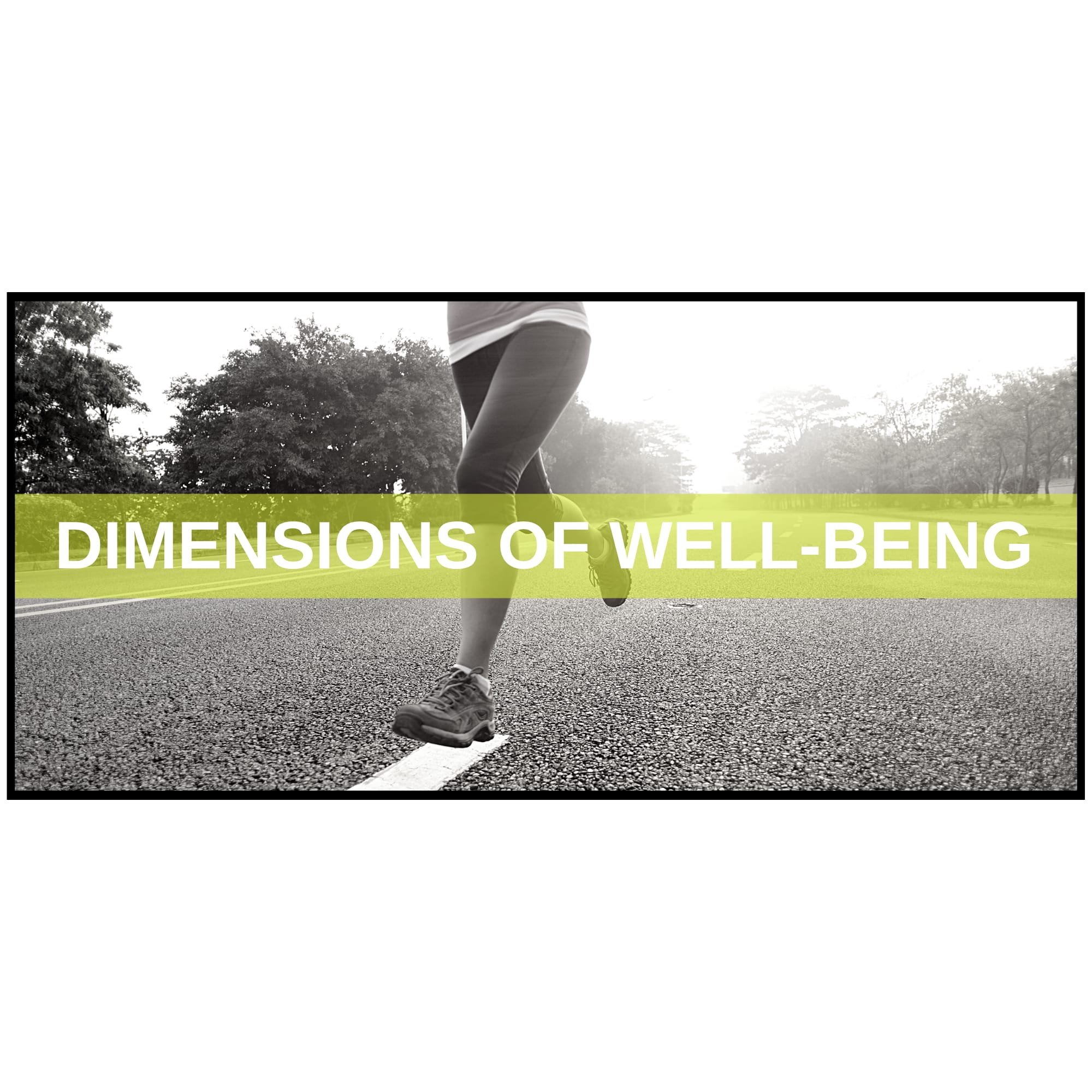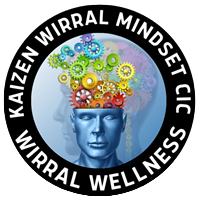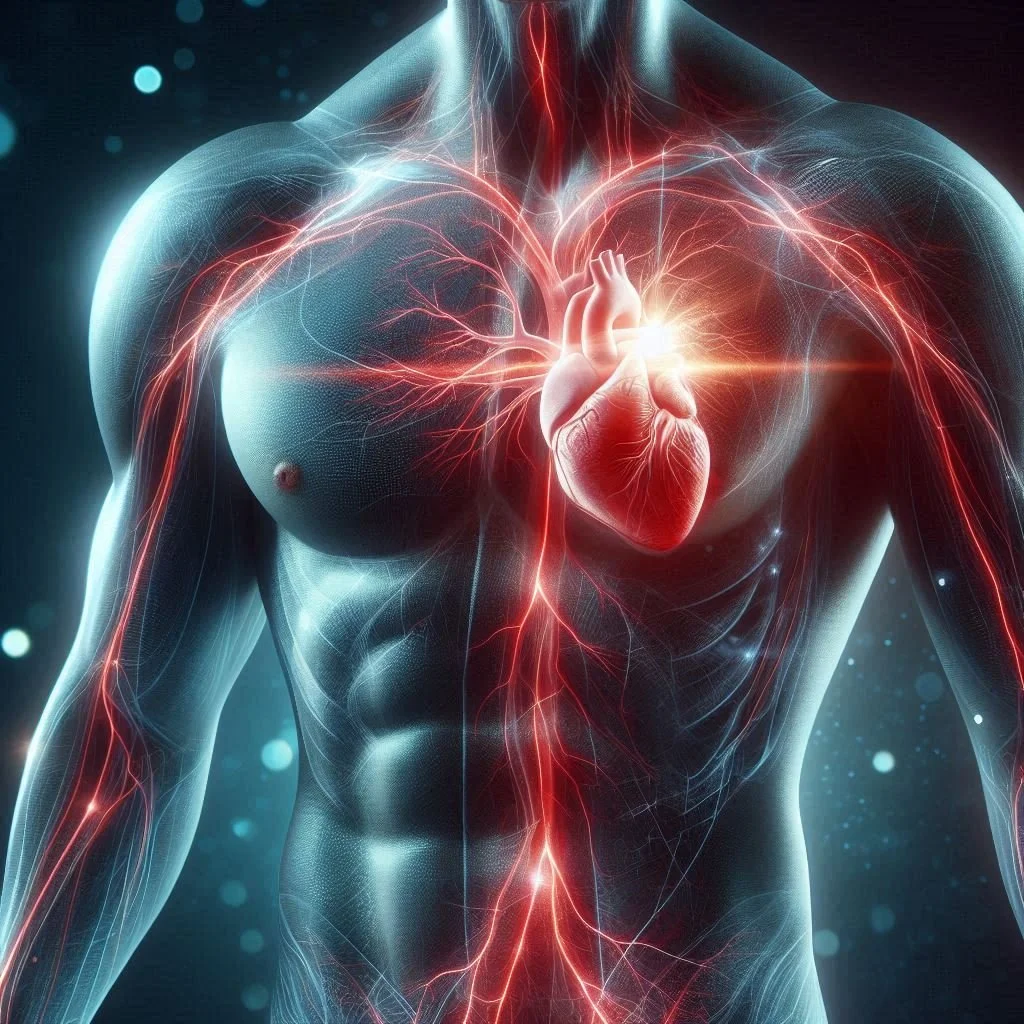
A Holistic Approach to Well-being
Well-being extends beyond physical health, encompassing a dynamic interaction between the mind, body, and spirit. It is the continuous pursuit of balance across multiple dimensions, each influencing the others. Neglecting any one area can have lasting effects on many others, making it essential to nurture all aspects for overall well-being.
Physical
Physical Well-being encompasses a variety of healthy behaviours including adequate and appropriate exercise, proper nutrition and abstaining from harmful habits such as drug use and alcohol abuse.
All of these, in combination, are what drive our ability to perform all daily activities, from occupational to recreational and different aspects of sports, with comfortable flexibility of movement without pain,
-
Typical beneficial exercises may include:
Walking
Jogging
Cycling
Swimming
Functional Training
Circuit training
HIIT training
Weight training
Spinning
CrossFit.
Tips for Physical Well-being:
Diet - eat and drink a variety of health nutritious foods and fluids, control meal portions, sleep hygiene get adequate rest, leisure use of alcohol in moderation
Avoid harmful substances, stop smoking
Avoidance of injury; recognise early warning signs, maintain necessary medical examinations / blood tests etc…
Self Awareness - listen to your body and learn to recognise early signs of illness.
It means learning about and identifying symptoms of disease, getting regular medical check-ups, and protecting yourself from injuries and harm. Developing such healthy habits today will not only add years to your life, but will enhance the enjoyment and quality of those years.
At Kaizen Mindset we actively advise the use of healthy coping strategy for your physical Well-being.
Emotional
Emotional Well-being is a dynamic state that fluctuates frequently with your other Dimensions of Well-being, and relates to the quality of every individual experience.
Emotional Well-being is influenced by several of the other Dimensions of Well-being such as Demographic, Economic or Situational factors.
-
Good Emotional Well-being is typically defined as possessing the ability to feel and express human emotions such as happiness, sadness, and anger. It means having the ability to love and be loved and achieving a sense of fulfilment in life.
Decreased Emotional Well-being is affected by:
Stress
Distress Anxiety & Depression these factors in turn once compounded can lead to Mental ill health concerns such as
Stress
Distress
Digestive disorders
Auto immune disorders
Insomnia
Lack of energy balance
Pain.
Increased Emotional Well-being encompasses:
Optimism
Self-esteem
Self-acceptance
Coping abilities
Ability to share feelings.
Tips and suggestions for achieving optimal Emotional Well-being:
Practise acceptance
Practise gratitude
Tune-in to your thoughts and feelings
Practise logical thinking
Cultivate an optimistic attitude
Seek and provide support
Learn overwhelm management skills.
Intellectual
The intellectual dimension encourages creative, stimulating mental activities. Our minds need to be continually inspired and exercised just as our bodies do.
-
Intellectual Well-being is defined as recognising our own creative abilities and finding ways to best use them to expand knowledge and skills.
People who possess a high levels of Intellectual Well-being have an active mind and continue to learn.
An intellectually well person uses all available resources to expand their knowledge and improve skills.
For them, keeping up to date on current events and participating in activities that stimulate their minds are key elements of the Dimensions of Well-being; they understand the importance of all of the dimensions and that they are inter-dependent.
Tips and suggestions for optimal Intellectual Well-being include:
Take a course or qualification
Readfor fun as well as for knowledge
Learn a foreign language
Play games
Learn to play an instrument
Seek out people who challenge you intellectually
Debate issues without judgment
Seek knowledge
Journal
Appreciate art & culture.
Run self-intellect challenges:
Memory recall
Create word pictures
Take a different route to locations
Draw a map from memory
Challenge your taste buds
Practice hand to eye coordination.
Spiritual
Spiritual Well-being involves possessing a set of guiding beliefs, principles, or values that help give direction to one’s life, It encompasses a high level of faith, hope and commitment to your individual beliefs that provide a sense of meaning and purpose.
It is willingness to seek meaning and purpose in human existence, to question everything and to appreciate the things which cannot be readily explained or understood.
-
A spiritually well person seeks harmony between what lies within as well as the forces outside.
Tips and suggestions for optimal Spiritual Well-being:
Explore your spiritual core
Invest in mindful practise (refer to the Routes to Wellness)
Spend time alone
Be inquisitive and curious
Be present
Listen with your heart
Live by your principles
Grasp opportunities for growth.
Environmental
Environmental Well-being is an awareness of the unstable state of the earth, and the effects of your daily habits on the physical environment.
It consists of maintaining a way of life that maximizes harmony with the earth, and minimises harm to the environment, It includes being involved in socially responsible activities to protect the environment.
-
Tips and suggestions for optimal Environmental Well-being:
Reduce, reuse, recycle
Conserve water and other resources
Minimise chemical use
Collect litter
Reduce usage of electricity & fuels
Renew your relationship with the earth.
Financial
Financial Well-being constitutes overall financial health, and encompasses all the areas of your financial obligations and savings.
Financial burden is often an area of extreme vulnerability and stress.
-
Tips and suggestions for Financial Well-being:
Control your earnings & income
Overheads
Budgeting
Investments
Credit Accounts
Tax Planning
Insurance Coverage
Retirement planning.
Occupational
Occupational/Vocational Well-being involves preparing and making use of your gifts, skills, and talents to gain purpose, happiness, and enrichment in your life.
-
The development of Occupational Well-being is related to your attitude about your work, and achieving satisfaction in it.
Optimal Occupational Well-being allows you to maintain a positive attitude, and experience extended satisfaction & pleasure in your employment.
Occupational Well-being means successfully integrating the commitment to your occupation, into a total lifestyle that is satisfying and rewarding.
Tips and suggestions for optimal Occupational Well-being include:
Explore a variety of career options
Create a vision for your future Identify your own Ikigai
Choose a career that suits your personality, interests and talents
Be open to change and learn new skills
Complete regular health risk assessments.









Social
Social Well-being refers to our ability to interact successfully in our global community, and to live up to the expectations and demands of our personal roles. This means learning good communication skills, developing intimacy with others, and creating a support network of friends and family members.
Social Well-being includes showing respect for others and yourself, contributing to your community and to the world, builds a sense of belonging.
Tips and suggestions for optimal Social Well-being include:
Cultivate healthy relationships
Add value to others lives
Contribute to your community
Share your talents and skills
Create a sense of belonging
Communicate your thoughts, feelings, and ideas.